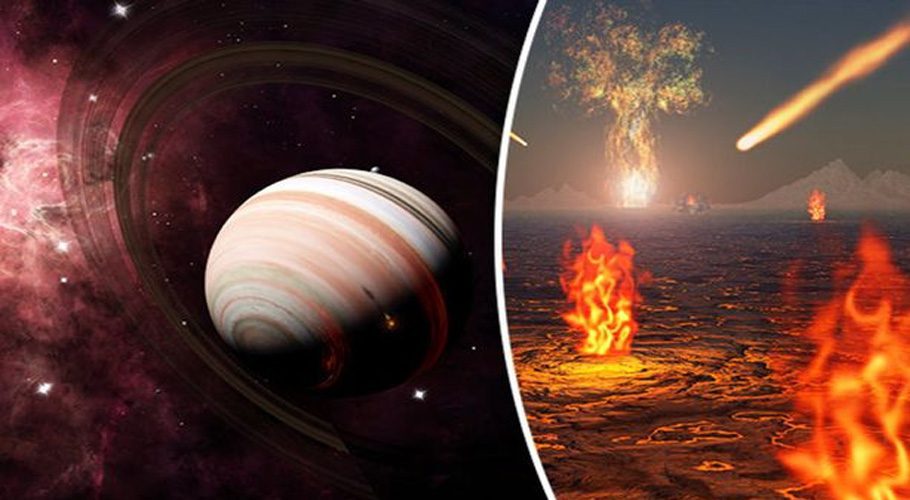Toronto: An extremely hot planet, known to be Ultra hot Jupiter where it rains iron, discovered by scientists.
Research made by an international team at Cornell University, University of Toronto and Queens University Belfast reported that, there is a place where Iron condenses on the night and then later it rains from the sky.
Known as the Ultra Hot Jupiter exoplanet (giant gas planets having orbital period less than 10 days), with the unprecedented highest temperatures is an exceptional and remarkable discovery so far.
Though, the study conducted on ‘WASP-76b’ the hottest Jupiter was made in high resolutions with Gemini North in Hawaii in 2016 is almost 640 light years from the earth and is compiled later with multi year research.
These types of stars are considered slightly hotter than sun which completes its orbit with 1.8 earth days. One of the authors ‘Ray Jayawardhana’ of the College of Arts and Sciences at Cornell University and Harold Tanner Dean of the College it is stated that;
“As we do remote sensing of dozens of exoplanets, spanning a range of masses and temperatures, we will develop a more complete picture of the true diversity of alien worlds – from those hot enough to harbor iron rain to others with more moderate climates, from those heftier than Jupiter to others not much bigger than the Earth,”.
Jaywardhana further stated that, due to the remarkable technology of well advanced Telescopes today we are able to learn so much about the atmosphere.
During the observations of exoplanet WASP-76b’s, group spotted a rare ratio of spectral lines formed.
“We’re seeing so much calcium; it’s a really strong feature,” said one of the authors, University of Toronto’s doctoral Student.
READ MORE: SpaceX capsule with world’s first all-civilian crew returns to Earth
However, due to the to astronomical body’s orbiting which faces same face towards the object it is revolving, the exoplanet’s one side has always a permanent night which makes it relatively cool 2,400-degree Fahrenheit average temperature. The hottest Jupiter moves faster in its orbit which makes it able to differentiate from starlight in the galaxy.
Meanwhile, Astronomers are trying to delve deeper in to understand the atmosphere of exoplanets, the studies conducted today are much advanced and technologized that earlier which is revealing the unseen and beyond the human imagination.


































